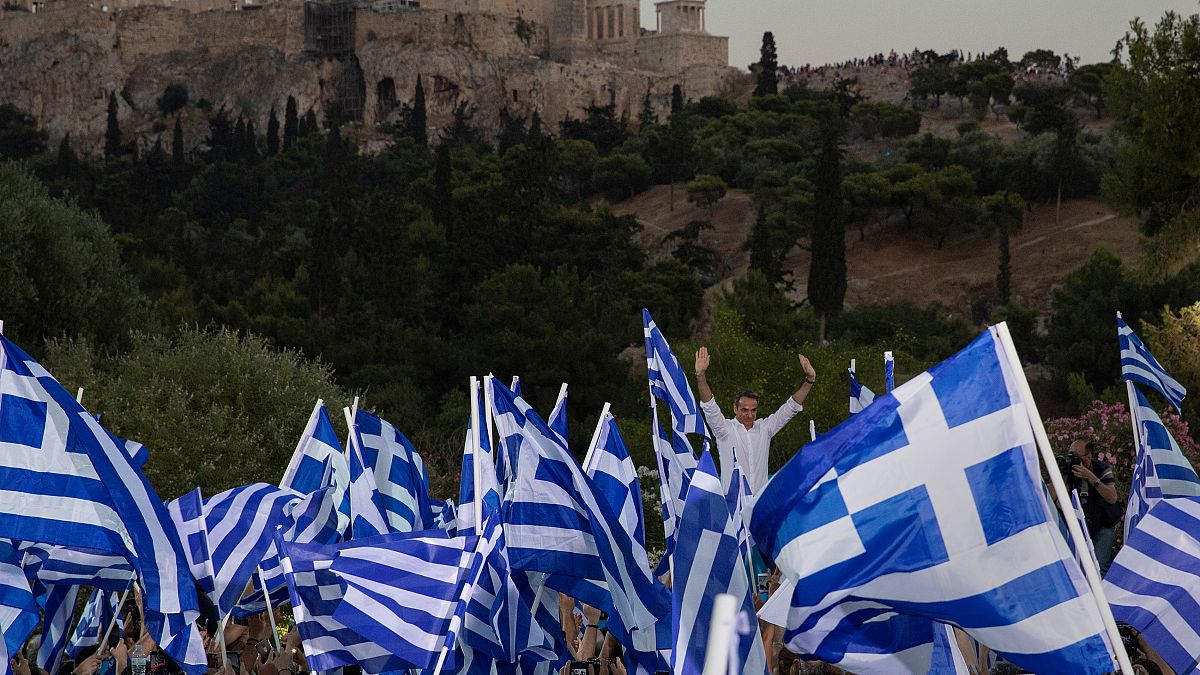Greek elections: PM Tsipras, challenger Mitsotakis make final pitch to voters
Greek opposition leader Kyriakos Mitsotakis, the favourite to become the country's prime minister after Sunday's legislative election, made his final pitch to voters on Thursday promising new tax breaks.
Thousands, waving the blue and white Greek flag, joined the conservative candidate from the New Democracy (ND) party in Athens, for his ultimate campaign rally.
In his speech, delivered with the illuminated Parthenon in the background, Mitsotakis said he would reduce the tax rate for low incomes from 22% today to 9%.
He also targeted the property tax, pledging to have it reduced by 30% over the next two years and promised to boost the country's attractivity and competitiveness.
"It is our obligation, especially to the young generation who deserves to find work in Greece" instead of having to go abroad, he said.
READ MORE: Greek elections: Which parties are in the race?
The 51-year-old, who hails from one of the best-known political families in the country, has made the economy and the middle-class the focus of his campaign.
The polls give him a comfortable margin over his nearest opponent, current left-wing Prime Minister Alexis Tsipras, who is being punished for the country's continued economic woes.
The Greek leader also held a rally on Thursday evening in which he defended his track record, including the successful exit from the three successive bailout programmes.
"We increased the minimum wage by 11% as soon as we were freed from the memoranda," he said, adding: "We pledged a 15% increase over the next two years, so that wages could at least reach the pre-crisis levels."
READ MORE: Greek elections: What you need to know
